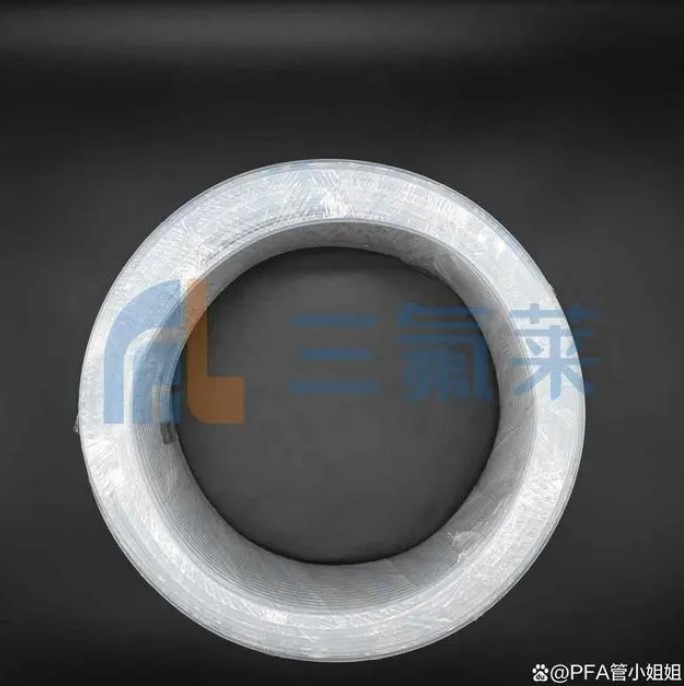What is PFA?
PFA is a copolymer of tetrafluoroethylene and perfluoroalkyl vinyl ether, which is suitable for extrusion molding, injection molding, transfer molding and other melt forming methods. Triflure is generally used to process PFA: DuPont/Chemus PFA resin raw materials. Daikin PFA resin raw materials, Dongyue PFA resin raw materials, Juhua PFA resin raw materials, Sanaifu PFA resin raw materials, etc.

The difference between Teflon and PFA
PFA (perfluoroalkoxy) is not equivalent to Teflon. Although they are both polymer materials, there are some important differences between them.
PFA is a perfluorinated polymer with excellent thermal stability and chemical inertia. It has excellent chemical corrosion resistance and is almost unaffected by all chemicals. As a result, Triflure's PFA products are widely used in industrial and manufacturing industries such as chemical processing, semiconductor manufacturing and food processing. PFA can also be used to manufacture high-temperature lubricants and fluid sealing materials.
Teflon, however, is a material made from polytetrafluoroethylene (PTFE) and is one of the most widely used fluoroplastics today. Teflon (Teflon) is generally PTFE, that is, polytetrafluoroethylene. The main characteristics of Teflon are low coefficient of friction, high chemical resistance and good high temperature resistance. Therefore, Teflon has a wide range of applications in many fields, such as anti-stick coatings, non-stick pans, seals, etc. Teflon can also be used to coat the inside of pipes and storage tanks to protect against chemical attack.
The temperature resistance of PFA tube
PFA material has excellent heat resistance, but generally under harsh conditions, such as pressure, we recommend: -80 ° C to 260 ° C.